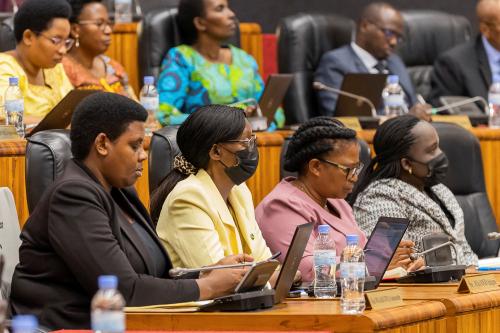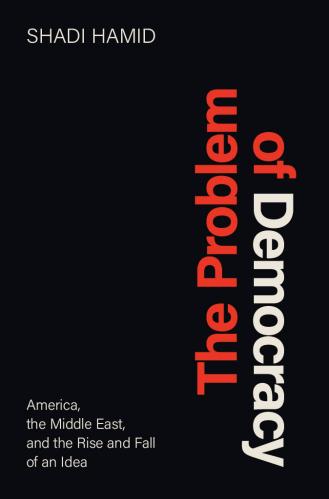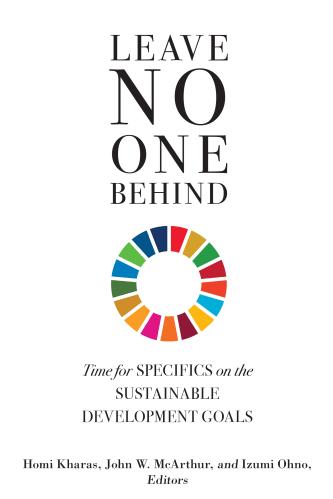Dictators around the world are increasingly engaging in so-called “genderwashing”: weaponizing women’s empowerment in order to gain legitimacy and distract from human rights violations. Adopting gender quotas in elections, in particular, has become a go-to tactic for dictators, with two-thirds of today’s gender quotas in autocracies.
For dictators, these gender quotas are a smart investment, helping them earn international praise and assistance. Former Algerian President Abdelaziz Bouteflika, for instance, was hailed by Reuters in 2012 as “the new trailblazer” for women’s rights in the Arab world, after his quotas granted women almost one-third of the parliament. Even Egypt’s dictator, Abdel Fattah el-Sissi, who 10 years ago orchestrated a military coup and massacre, has since been applauded in the Washington Post as a “friendly” autocrat in part for reserving a quarter of the parliament for women in 2020.
Many in the Arab world are skeptical of gender quotas
Our research, however, finds that while autocratic gender quotas might be praised abroad, they are viewed quite differently at home. In a new article just published in the American Political Science Review, we show that public support for these gender quotas is relatively low, as populations are cognizant that the gains to women are coming at the cost of legitimizing the regime.
First, we analyze surveys from the Arab Barometer to show that populations across the Arab world view gender quotas through a political lens. While regime supporters may applaud the dictator’s initiative to establish quotas, opponents are more skeptical, wary of granting the regime legitimacy. Overall, about 57% of regime supporters in the Arab world supported gender quotas, compared to only 40% among regime opponents. This gap is found in almost every country in the region and holds when controlling for gender, gender egalitarianism, and Islamism, among other covariates.
Next, we conduct an original survey in Algeria to explain this pattern. We find that support for Bouteflika’s gender quotas was particularly low, at 28% overall, and only 25% among the opposition. To explore whether concerns about legitimizing the regime were dampening support for the quotas, we then employ a survey experiment where we provide additional context to some respondents about what the quotas actually did. Reminding the Algerian opposition that the quotas benefited women increased support for the quotas by 10 percentage points (to 35%), a statistically significant increase from baseline. But when reminded that the quotas benefited both women and the regime, support remained at a low 29%, statistically no different from baseline. In short, for oppositions in dictatorships, the costs of legitimizing the regime appear to outweigh the benefits of empowering women. This trade-off thus dampens public support for quotas in dictatorships, particularly among regime opponents.
Gender reforms are tarnished when associated with dictators
Without widespread public buy-in, gender quotas in dictatorships are likely to be less effective and less able to translate women’s increased descriptive representation into substantive policy change, as they often do in democracies. Moreover, without public support, gender quotas are likely to prove brittle, unlikely to outlast the dictator who introduced them. In Algeria, for instance, Bouteflika’s quotas were watered down by his successor, Abdelmadjid Tebboune. As a result, women’s representation in parliament dropped from 26% to just 8% today.
In Egypt, a gender quota passed by Anwar Sadat was scrapped after being tainted as part of “Jehan’s Laws” (referring to Sadat’s wife), while a later quota attempted under Hosni Mubarak was likewise abandoned after the 2011 revolution for being part of “Suzanne’s Laws” (referring to Mubarak’s wife). These examples indicate that if a gender reform becomes tainted by association with a particular dictator, it may tarnish gender-forward policies even after he is deposed. In this way, genderwashing might offer short-term gains but long-term costs for women’s empowerment.
Beyond the reforms, genderwashing might also taint the activists who had worked with the dictator. For instance, Tunisian women’s rights activists ultimately tarnished their reputation by working with former Tunisian President Zine El Abidine Ben Ali, making it more difficult for them to advance women’s rights after the revolution. As one activist noted, “the dictatorship was pro-women…[so] the hatred against the dictatorship is expressed through action against women.” For activists, then, working with seemingly progressive dictators might be a double-edged sword, undercutting their public support and in turn their ability to advance reforms in the future. Our research thus adds to the existing literature on how gender quotas, particularly in autocracies, might actually produce a backlash towards women’s rights.
Women are more likely to support gender quotas
At the same time, not everyone evaluated the trade-off negatively and opposed the dictator’s gender quotas. In both the Arab Barometer and our survey in Algeria, women and gender egalitarian respondents (those who agreed that social and economic problems would improve if there were more women in office) tended to prioritize the gains to women. These respondents remained consistently supportive of gender quotas, regardless of the potential regime gains. In Algeria, for instance, men’s support for quotas dropped from 22% to 15% when reminded the regime would gain, but women’s support remained at a consistent 40% regardless of regime gains.
Similarly, gender egalitarian respondents remained at a consistent 50% support for quotas even when primed that the regime would gain legitimacy. These results suggest that women and feminists might on average be easier for progressive autocrats to coopt. In the Arab world, secular feminists often fear the loss of women’s rights if Islamists were to come to power. For regimes, these segments of the population may also be particularly important for staying in power. Political scientists Erica Chenoweth and Zoe Marks have argued that having more women on the front lines makes revolutions more likely to succeed. For dictators, then, coopting women through gender quotas may have additional benefits for helping them weather mass uprisings and stay in power.
Not all Islamist parties are anti-gender quotas
Our analysis also uncovered surprising results about Islamists’ attitudes towards gender quotas. In the Arab world, Islamist movements and parties have generally been fierce critics of gender reforms. We had hypothesized that Islamists would consistently oppose gender quotas on principle, even when they are in power and stand to gain legitimacy through them. This remained true in Algeria, where some pro-regime Islamists under Bouteflika continued to refuse to even print their female candidates’ faces on campaign posters.
But this was not the case elsewhere. Islamists in power elsewhere in the region, such as (at the time) Tunisia’s Ennahda and Morocco’s Justice and Development Party (PJD), had strategically come to embrace quotas, leading their respective countries in the number of female MPs. In turn, these parties shaped their followers to be as supportive of quotas as their counterparts in secular parties.
Trends beyond the Arab world
Finally, while our article focused on Arab autocracies, our theory likely travels beyond the Arab world and beyond dictatorships. Far-right parties in Europe, for instance, have also been accused of genderwashing when fielding women like Marine Le Pen and Giorgia Meloni in elections. If our results are any guide, these attempts should similarly engender a trade-off, with liberals who might otherwise have welcomed women’s empowerment more hesitant, wary of legitimizing the far-right.
In short, whether in autocracies or democracies, when progressive policies are coopted by illiberal or undemocratic actors, they are likely to enjoy only lukewarm support and risk becoming tainted in the process. Only when we better understand genderwashing practices, and their impact on public opinion, can we help preserve the hard-won gains for gender equality in the long term.
The Brookings Institution is committed to quality, independence, and impact.
We are supported by a diverse array of funders. In line with our values and policies, each Brookings publication represents the sole views of its author(s).









Commentary
Does genderwashing taint the struggle for gender equality?
August 9, 2023